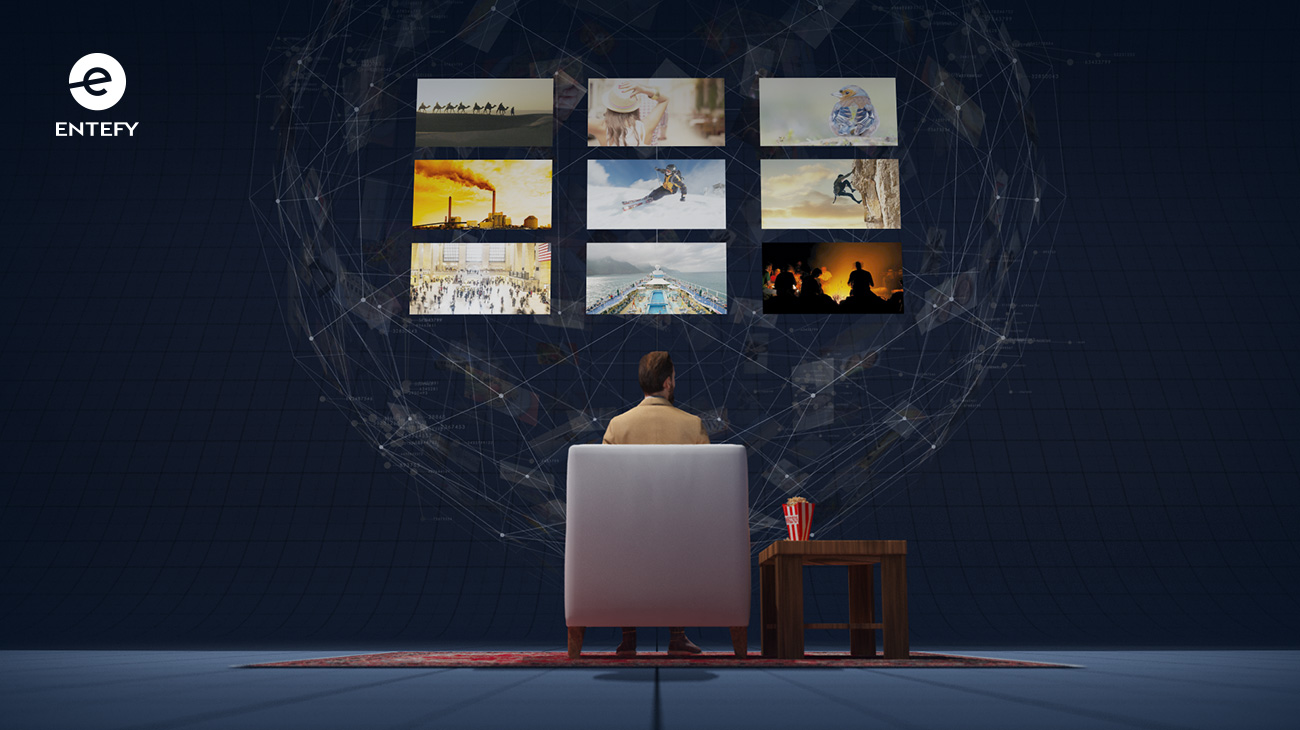How is the $735 billion U.S. entertainment and media industry responding to constantly changing consumer tastes and revenue declines in several traditional market segments? By getting personal. Very personal. And to do it, they’re leveraging AI and machine learning to develop entirely new forms of personalized user experiences.
Today’s consumers expect increasingly individualized entertainment, a trend that has led to revenue declines in traditional entertainment segments like movie theaters and on-demand rentals. In response, industry leaders are exploring cutting-edge solutions built on AI and machine learning technologies. These early efforts point to a highly personalized future that moves far beyond today’s recommendation engines to individualized content experiences and even custom-generated celebrities.
Here is a look at several high-impact AI and machine learning projects in different segments of the media industry.
Behind-the-scenes machine learning workflow management
Netflix has been a pioneer in the use of machine learning technology to enable personalized user experiences. So much so that their success has raised user expectations to the point where personalized experiences are no longer surprising but simply expected.
Netflix offered a behind-the-scenes look at how it manages its machine learning technology, a system it calls Meson. The system acts as a traffic cop for the company’s multiple ML pipelines that “build, train, and validate personalization algorithms that drive video recommendations.”
Meson is a great example of how a media brand can successfully build upon its early experiments with machine learning personalization to enable sophisticated new capabilities.
The future of AI-generated podcasts
A graduate student at the University of California, Santa Cruz developed an AI-generated “infinite” podcast technology that hints at the future of audience-of-1 entertainment. The project is known as Sheldon County, and works as an algorithmically-generated content engine that provides each individual listener of the podcast their own unique narrative and characters.
The project makes use of symbolic AI to generate rules and logic to fuel the story engine. Users enter a number, or “seed,” that the story engine uses to generate a unique set of story elements. It then uses a language generation system to create the story and a voice synthesizer to read it aloud. Sheldon County is a work in progress. But in an era when media executives complain of skyrocketing production costs, the auto-generated podcast serves as a promising model for both hyper-personalized content and machine-produced creativity.
AI-generated celebrities
In 1990’s Star Trek, crew members retreat to the holodeck to enjoy deeply personal, entirely immersive narrative entertainment. Back on Earth, today we call that virtual reality (VR), even if the nascent technology is far from the ultrarealistic format enjoyed by the crew of the starship Enterprise. Putting aside the limitations of today’s VR hardware, who is going to star in tomorrow’s virtual entertainments? Breakthrough research at NVIDIA suggests that the virtual celebrities of tomorrow will be perfectly cast for each viewer. And entirely computer-generated.
NVIDIA artificial intelligence scientists published a paper describing a new training technique for generative adversarial networks (GANs) that allows these systems to generate realistic celebrities using a vast database of actual celebrities. It’s a short leap from that use case to cutting-edge systems that generate the perfect actors or irresistible product pitchmen tailored for the individual viewer. Removing the fiction from science fiction.
Predicting audience engagement using machine learning
A team of MIT researchers points to another path into the personalized future. The scientists developed a machine learning system that scores the emotional content of filmed entertainment. “We developed machine-learning models that rely on deep neural networks to ‘watch’ small slices of video—movies, TV, and short online features—and estimate their positive or negative emotional content by the second,” the team explained.
The near-term use for this technology is to augment the creative powers of screenwriters and to predict the likely audience engagement with a given script. Yet as we’ve seen with these other examples of advanced personalization, it is possible to imagine machine learning being used to generate entertainment content specifically tailored to the personalities of a narrow audience, even of specific individuals. What better way to garner 5-star reviews than to tailor a film to the audience’s specific tastes?
NBCUniversal explores intelligent content
Machine learning that produces personalized advertisements, for example, can be thought of as first-generation entertainment AI. Current-generation AI might include voice-enabled systems that use natural language processing. NBCUniversal is pushing ahead into next-generation entertainment with intelligent content created using AI. ‘We have very many talented people that create content. AI enables this great content to become intelligent and allows us to access this content across multiple platforms (digital and linear) and in any format from TV to Alexa to Snapchat,’ the company explained.
The entertainment giant is leveraging emerging AI technologies like computer vision (CV) to automatically discover the content and context of video, including data on who is in a scene, what is happening, what is being said, and even the underlying sentiment. NBCUniversal uses this metadata in new products like customized clip generators or advanced search tools. Leveraging AI allows the company to better leverage its video collection. And create next-generation customer-facing services and internal capabilities.
With AI and machine learning supporting new forms of entertainment in virtual and real space, the future of entertainment looks to be a highly personalized one.
